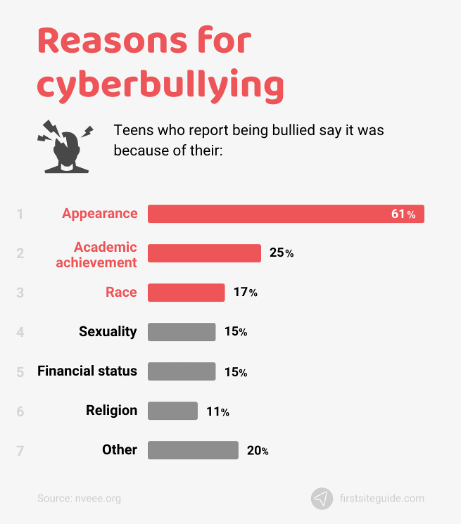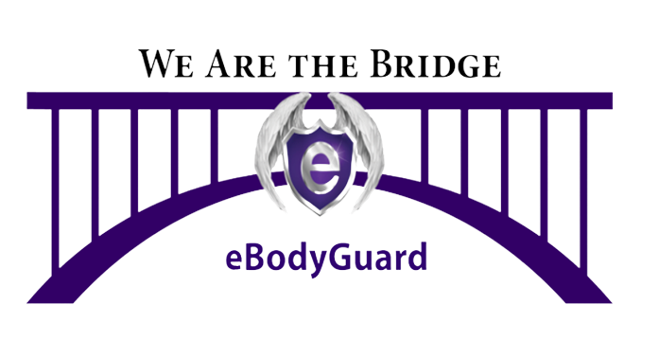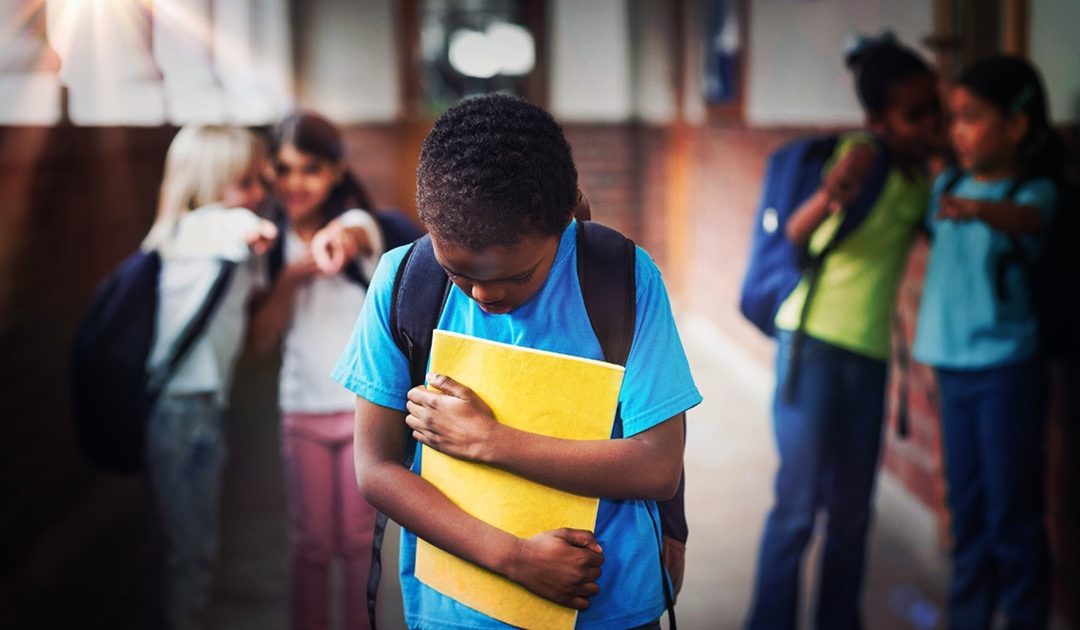Of all the social networks, kids on YouTube are the most likely to be cyberbullied at 79 percent, followed by Snapchat at 69 percent, TikTok at 64 percent, and Facebook at 49 percent.
Studies found that as a child’s age increased, so did the likelihood of cyberbullying. As the child aged in two-year intervals between the ages of 10 and 18, their likelihood of being cyberbullied increased by 2 percent.
Children from households with annual incomes of under $75,000 were twice as likely to be cyberbullied than kids from households with annual incomes of over $75,000 (22 versus 11 percent).
(https://www.security.org/resources/cyberbullying-facts-statistics/)

Many parents have no idea that cyberbullying is happening to their child, sometimes for many months. These are sensitive and difficult discussions between parents and their children. And even more difficult if you choose to report to authorities. Your child doesn’t have the know-how to capture evidence needed for an effective and diplomatic discussion. Here are some ways to support your child experiencing cyberbullying.
- Capture evidence in a way that protects and puts the privacy of your child first, and considers the need for supporting government compliances to keep your child’s privacy front and center.
If you and your child do decide to report, your child may want to remain anonymous. The evidence captured needs to present the appropriate narrative. Using one simplified package in a secure COPPA[1] compliant, HIPAA[2] compliant, FERPA[3] compliant, and FBI CJIS[4] compliant cloud is the most effective way to make a long-term impact on deterrence of bullying. The government’s capability to work with data that is managed in a way that protects both their access to the data and your ability to release the data to them provides a “new level” of safety that ensures all parties have checked the boxes around the data sharing. Additionally, the privacy of your child is at the forefront of the matter and through the compliances should remain that way. With CJIS, FERPA, and COPPA, juveniles are protected and remain anonymous.
- Choose a program that provides the option to not report. This is your private family matter. You may choose to simply be there for your child and counsel them through the most difficult time of their middle school or high school life. If you can be the support system for your child and they find you to be their confidant, this can be a bonding experience. Remember, your child loves and needs you and the best person to ever love them through this time is going to be you. If you need support t; your school counselor is a great resource to begin to seek out local resources. Other resources are available at https://www.stopbullying.gov/.
- Teach your child about the concept of a digital footprint. What we put into our digital footprint will never be erased. The texts we send, the places we visit online and the people we interact with are forever on a server somewhere. This is similar to driving in a car on a highway across the country with Google Maps, which traces your every move. No matter where we go, we are tracked by satellites. What we decide to be digitally is a reflection of our character. Empowering our children with this knowledge, helps them understand who to be and how to embrace what they can be moving forward in life.
If you and your organization want to learn more about how eBodyGuard can support you and your organization around bullying please schedule a demo through contact@eBodyGuard.org
Download eBodyGuard Versatile(™) through the Apple and Google PlayStore by searching for eBodyGuard
[1] Children’s Online Privacy Protection Act, applies to the online collection of personal information by persons or entities under U.S. jurisdiction about children under 13 years of age,
[2] Health Insurance Portability and Accountability Act of 1996(HIPAA) is a federal law that required the creation of national standards to protect sensitive patient health information from being disclosed without the patient’s
consent or knowledge.
[3] The Family Educational Rights and Privacy Act (FERPA) is a federal law that affords parents the right to have
access to their children’s education records, the right to seek to have the records amended, and the right to have some control over the disclosure of personally identifiable information from the education records
[4] FBI CJIS (Criminal Justice Information Services) is the term used to refer to all the CJI Criminal Justice Information provided data necessary for law enforcement agencies to perform their mission and enforce the laws, including but not limited to biometric, identity history, person, organization, property (when accompanied by any personally identifiable information), and case/incident history data. In many instances, accompanying victim and witness data also needs protection.

